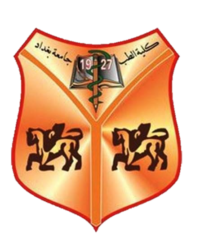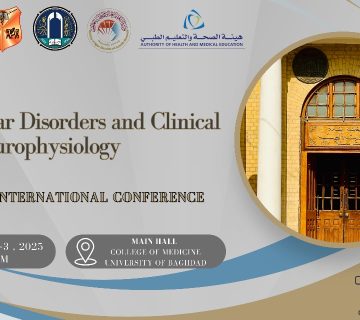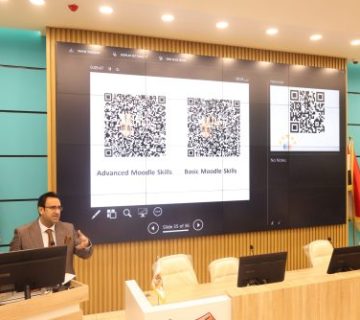The Clinical Biochemistry Department at the College of Medicine, University of Baghdad
Held a doctoral dissertation defense in the field of Clinical Biochemistry as part of the requirements for obtaining a Ph.D. degree in Clinical Biochemistry for the student, Rahim Sabar Jabr. The dissertation was titled 'The Impact of Some Modern Clinical Biochemical Indicators on Predicting Type 2 Diabetes in a Sample of Healthy Iraqi Individuals.'
The dissertation was supervised by Dr. Basil Awaid Mohammed Saleh and Dr. Ahmed Aboud Wahib. The examination committee included:
- Prof. Hala Ghazi Mahmoud (Chairperson)
- Prof. Manal Kamal Rashid
- Prof. Kifah Hamdan Abdul Ghafur
- Prof. Ikhlas Khaled Hameed
- Dr. Essam Nouri Salman
The aim of the dissertation was to identify clinical biochemical indicators that can be used to predict Type 2 diabetes at an early stage among seemingly healthy Iraqi individuals, whether they have a family history of the disease or not.
Additionally, the research aimed to diagnose individuals who may be at risk of developing diabetes or are on the path to its development, enabling them to modify their lifestyles to prevent the disease. Reports from the World Health Organization indicate that 80 to 90% of Type 2 diabetes cases can be avoided or delayed by adopting a healthy lifestyle through exercise and weight reduction.
The study included three groups:
- The first consisted of Type 2 diabetes patients who had been diagnosed for more than 5 years and had a family history of the disease.
- The second group included siblings of the same patient who did not have Type 2 diabetes.
- The third group, the control group, comprised healthy individuals with no history of diabetes.
The study measured various indicators, including mannose, alpha-hydroxybutyrate, alpha-tocopherol, insulin, and both TyG and HOMA-IR indices.
The study concluded that mannose, alpha-hydroxybutyrate, and alpha-tocopherol, a type of vitamin E, are reliable indicators for predicting Type 2 diabetes. These indicators can be used to categorize individuals who may be at risk of the disease or are close to its development at an early stage.
The researcher was awarded an honors degree following the public defense of the dissertation, taking into consideration the use of scientific references and the defense of the research.
Comments are disabled.









